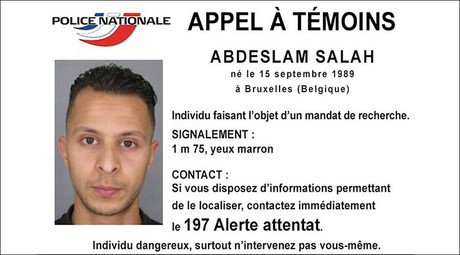France’s new terrorist database goes live in effort to prevent future attacks

France has launched a new national database to keep track of convicted terrorists after passing a law last year. The system, available to police and state officials, will be storing the names of the offenders and their crimes for 20 years.
The database will be under the supervision of a judge and the Justice Ministry, local media reported. That means that all the entries will have to be approved first. In case of dismissals and acquittals the names of the individuals will be erased.
The database will be accessible to police, intelligence and state officials.
The idea was first announced in January 2015 following the terrorist attacks in Paris and passed last July. It came into effect Friday.
The proposal stemmed from the difficulty local authorities had in locating people convicted of terrorism in the past, according to French government.
The database will resemble the already existing national databases for criminal sex offenders and the criminal records.
France will now be able to register names and their terrorist offenses for up to 20 years. However, information about minors will be stored only for 10 years.
The database comes after Paris year of terror, as waves of deadly attacks have held France in a constant state of emergency and stress.
Paris and the world was first shocked when just before Christmas on December 20, 2014, in the largest suburb of the city of Tours, in Central France, an attacker of Burundian origin, shouted “Allahu Akbar” [God is great] before attacking officers at a police station with a knife.
READ MORE: Monstrous wave of Paris attacks underlines France’s year of terror
Attacks continued sporadically. And then in early January 2015 a series of five new terrorist attacks, which took place in and around Paris, sent the French capital into panic. The four attacks killed at least 20 people and wounded dozens more, before three of the assailants were killed by special forces. The fourth terrorist remains at large.
Another set of terror attacks rocked the French capital on November 13, 2015, killing over 130 people and injuring hundreds of others.
Three suicide bombers carried out an assault near the Stade de France in Saint-Denis, which was followed by suicide bombings and mass shootings at cafés and restaurants. Of the 130 victims, at least 89 were killed in the Bataclan theatre, where the jihadists took hostages before engaging in a standoff with police officers.
Seven of the terrorists died at the scene. Four days after the attacks, the alleged mastermind and sponsor, Abaaoud, was killed during an anti-terrorist operation in the Paris suburb of Saint-Denis.
France also reportedly had serious failings locating known terror suspects. Thus, Salah Abdeslam, best friend of the Paris attack “mastermind” and brother of one of the suicide bombers, was stopped, and let go, three times after assisting the jihadists.
Abdeslam was able to calmly flee the scene of the Paris massacre by asking two friends from a Brussels suburb to pick him up because his car had “broken down,” according to media reports.
Months after November 13 attacks, local media revealed that French intelligence was alerted about possible terrorist attacks in France and Belgium on June 24, 2015, nearly five months prior to the Paris assaults.














